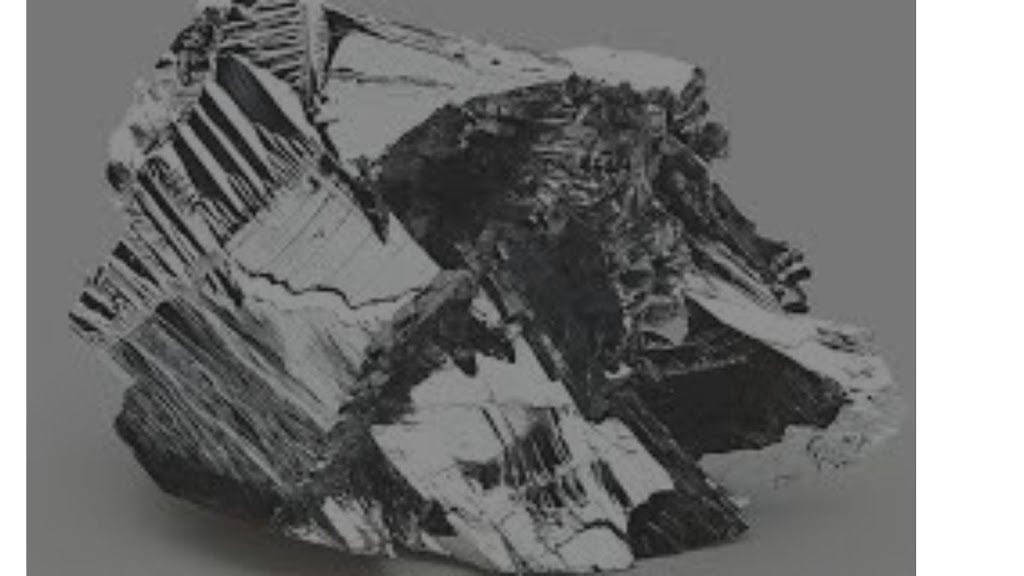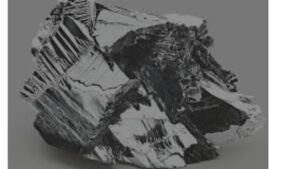Homeopathic Medicine Tellurium: Exploring Its Origin,
Uses, and Benefits
Homeopathy, a holistic system of medicine, harnesses the
healing properties of natural substances to stimulate the body’s innate healing
mechanisms. Among the vast array of homeopathic remedies, Tellurium stands out
for its unique properties and therapeutic potential. In this comprehensive
guide, we’ll delve into the origin, extraction process, potencies, symptoms it
addresses, uses, potential side effects, and preventive measures associated
with Tellurium.
Origin of Tellurium
Tellurium, a chemical element with the atomic number 52, is
a rare metalloid found in the Earth’s crust. While it has various industrial
applications, Tellurium also possesses medicinal properties that have been
harnessed in homeopathy. In its homeopathic form, Tellurium is derived from
Tellurium metal through a meticulous process that involves potentization and
dilution to harness its therapeutic potential.
Extraction Process
The extraction process of Tellurium for homeopathic use
involves several steps to ensure its efficacy and safety:
- Selection
of Source Material: High-quality Tellurium metal is selected as the
source material for the homeopathic remedy. - Trituration:
The Tellurium metal undergoes a process of trituration, where it is ground
into a fine powder. This process helps increase the surface area of the
metal, making it more accessible for potentization. - Potentization:
The triturated Tellurium is then potentized through a series of dilutions
and succussions. Each dilution involves a precise ratio of Tellurium to a
solvent, typically alcohol and water. Succussion, or vigorous shaking, is
performed at each stage to potentize the remedy further. - Selection
of Potencies: The potentized Tellurium is available in various
potencies, including 6X, 30C, 200C, and higher. The choice of potency
depends on the individual’s symptoms and the judgment of the homeopath.
Symptoms Addressed by Tellurium
Tellurium is primarily indicated for conditions
characterized by affections of the skin, mucous membranes, and the nervous
system. The primary symptoms addressed by Tellurium include:
Skin Conditions
- Eczema:
Tellurium is beneficial for eczematous eruptions with intense itching and
burning, especially in the folds of the skin. - Ringworm:
It is indicated for ring-shaped lesions with raised edges and central
clearing, commonly known as ringworm or tinea corporis. - Intertrigo:
Tellurium helps alleviate red, raw, and inflamed skin in areas where skin
surfaces rub together, such as the groin and armpits.
Mucous Membrane Affections
- Thrush:
Tellurium is useful for white patches on the oral mucosa, tongue, and
throat, often accompanied by a foul odor. - Vaginal
Candidiasis: It addresses vaginal itching, burning, and discharge
associated with Candida albicans infection.
Neurological Symptoms
- Neuralgia:
Tellurium is indicated for shooting or stabbing pains along the course of
nerves, often accompanied by numbness or tingling sensations. - Tremors:
It helps alleviate involuntary shaking or trembling of the hands or other
parts of the body.
Uses of Tellurium
Tellurium has diverse applications in homeopathy, addressing
a range of acute and chronic conditions. Some of the key uses of Tellurium
include:
1. Skin Disorders
- Eczema:
Tellurium is effective for eczematous eruptions with intense itching and
burning, providing relief and promoting healing. - Ringworm:
It helps clear ring-shaped lesions on the skin, reducing itching and
inflammation. - Intertrigo:
Tellurium soothes red, raw, and inflamed skin in areas prone to friction
and moisture.
2. Mucous Membrane Affections
- Thrush:
Tellurium addresses white patches in the mouth and throat, relieving pain
and discomfort associated with thrush. - Vaginal
Candidiasis: It helps alleviate itching, burning, and discharge in
cases of vaginal yeast infection.
3. Neurological Symptoms
- Neuralgia:
Tellurium provides relief from shooting or stabbing pains along nerves,
restoring comfort and mobility. - Tremors:
It helps reduce involuntary trembling or shaking, improving motor control
and coordination.
Side Effects of Tellurium
While homeopathic remedies like Tellurium are generally
considered safe when used as directed, there can be some rare side effects and
reactions:
Potential Side Effects
- Temporary
Aggravation: Some individuals may experience a temporary worsening of
symptoms, known as a homeopathic aggravation, before experiencing
improvement. - Allergic
Reactions: Although rare, allergic reactions to Tellurium or its
components may occur in sensitive individuals.
Preventive Measures
- Consultation
with a Homeopath: It is essential to consult a qualified homeopath for
proper diagnosis and treatment guidance, especially if using Tellurium for
chronic or serious conditions. - Correct
Potency and Dosage: Following the prescribed potency and dosage
instructions is crucial to minimize the risk of side effects and ensure
optimal therapeutic benefits. - Monitoring
and Follow-Up: Regular monitoring and follow-up with a homeopath can
help track progress and adjust the treatment plan as needed.
FAQs about Homeopathic Medicine Tellurium
Q1: What is Tellurium in homeopathy?
A1: Tellurium is a homeopathic remedy derived from
the rare metalloid Tellurium. It is used to address various skin, mucous
membrane, and neurological conditions.
Q2: How is Tellurium prepared in homeopathy?
A2: Tellurium is prepared through a process of
trituration, potentization, and dilution. The source material, Tellurium metal,
undergoes grinding into a fine powder, followed by successive dilutions and
succussions to create different potencies.
Q3: What conditions can Tellurium treat?
A3: Tellurium is indicated for skin conditions such
as eczema, ringworm, and intertrigo, as well as mucous membrane affections like
thrush and vaginal candidiasis. It also addresses neurological symptoms such as
neuralgia and tremors.
Q4: How is Tellurium administered?
A4: Tellurium is typically administered orally in the
form of small lactose pellets or liquid dilutions. The dosage and frequency
depend on the individual’s symptoms and the potency of the remedy.
Q5: Is Tellurium safe for long-term use?
A5: When used as directed by a qualified homeopath,
Tellurium is generally safe for long-term use. However, it is essential to
monitor progress and adjust the treatment as needed under professional
guidance.
Q6: Can Tellurium be used for children?
A6: Tellurium can be used for children, especially
for skin conditions like eczema and ringworm. However, it is important to
consult a qualified homeopath to determine the appropriate dosage and potency
for children.
Q7: Are there any side effects of using Tellurium?
A7: Homeopathic remedies like Tellurium are generally
considered safe when used appropriately. However, some individuals may
experience a temporary worsening of symptoms or rare allergic reactions.
Q8: Can Tellurium be used alongside conventional
treatments?
A8: Tellurium can complement conventional treatments
in some cases. However, it is important to consult with a healthcare
professional to ensure compatibility and avoid potential interactions.
Q9: How long does it take for Tellurium to work?
A9: The time it takes for Tellurium to work varies
depending on the individual’s condition, overall health, and response to the
remedy. Some people may experience improvement in symptoms within days or
weeks, while chronic conditions may require longer-term treatment.
Q10: Is Tellurium effective for chronic skin conditions?
A10: Yes, Tellurium is effective for chronic skin
conditions such as eczema, ringworm, and intertrigo. It provides relief from
itching, inflammation, and other associated symptoms.
Q11: Can Tellurium be used during pregnancy or
breastfeeding?
A11: It is advisable to consult a healthcare
professional before using Tellurium during pregnancy or breastfeeding. A
qualified homeopath can provide guidance on the appropriate use of the remedy
in such circumstances.
Q12: How should Tellurium be stored?
A12: Tellurium should be stored in a cool, dry place
away from direct sunlight and strong odors. It is important to follow the
storage instructions provided by the manufacturer or healthcare provider.
Q13: Can Tellurium be used for fungal infections?
A13: Yes, Tellurium is effective for fungal
infections such as ringworm and vaginal candidiasis. It helps alleviate
itching, burning, and other associated symptoms.
Q14: Are there any dietary restrictions while taking
Tellurium?
A14: There are typically no specific dietary
restrictions associated with taking Tellurium. However, maintaining a balanced
and healthy diet may support overall health and complement the effects of
homeopathic treatment.
Q15: Can Tellurium be used for oral health issues?
A15: Yes, Tellurium is indicated for oral health
issues such as thrush, characterized by white patches on the oral mucosa. It
helps relieve pain, discomfort, and other associated symptoms.
Conclusion
Tellurium, a unique homeopathic remedy derived from the rare
metalloid Tellurium, offers valuable therapeutic benefits for a range of skin,
mucous membrane, and neurological conditions. Its meticulous preparation
process and diverse applications make it a valuable addition to the homeopathic
materia medica.
By understanding the origin, extraction process, potencies,
symptoms it addresses, uses, potential side effects, and preventive measures
associated with Tellurium, individuals can make informed decisions about its
use in promoting health and well-being. As with any homeopathic remedy, seeking
guidance from a qualified homeopath is essential to ensure safe and effective
treatment outcomes.

